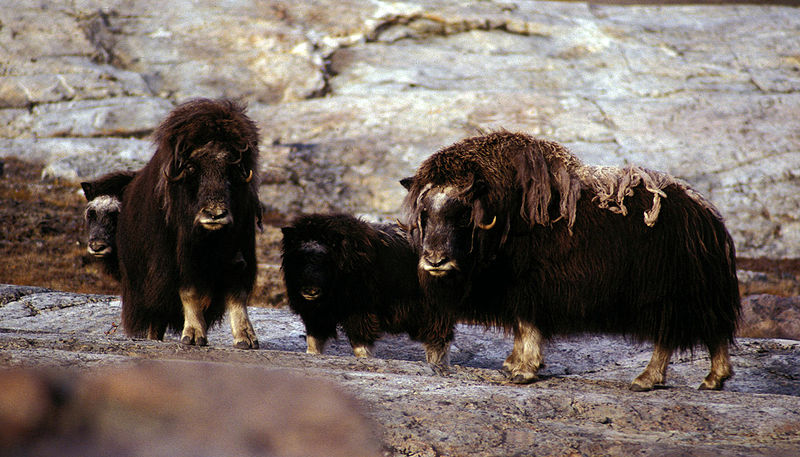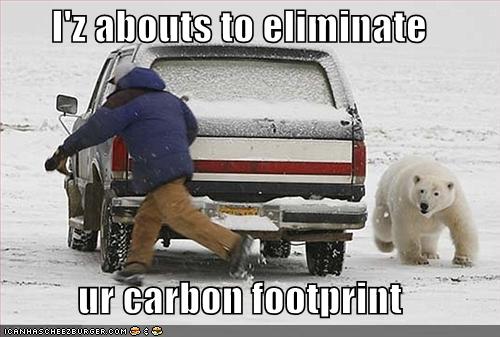
Photo by Hannes Grobe, AWI, courtesy Wikimedia Commons
There’s a lot more on the line in Copenhagen than our own well-being. The well-being of a whole bunch of other species, for starters.
The Wildlife Conservation Society today joined the throng of organizations, scientists, and researchers releasing important findings in conjunction with COP15—trying to leverage the outcome with years of data and observation.
WCS’s report (PDF) highlights more than a dozen species and groups facing threats from a warming climate. It’s not just about polar bears, obviously. Many wild plants and animals are affected by changes in:
- Land and sea temperatures
- Rain patterns
- Disease and pathogen boundaries
- Predation, human and otherwise
The WCS report particularly highlights the role of deforestation in climate change. Nearly 20 percent of greenhouse gas emissions are the result of deforestation—that’s more than the combined output of all the world’s trucks, trains, cars, planes, and ships. So protecting our extant forests is one of the thriftiest and swiftest of remedies.
Climate change affects species in every habitat around the world. Here are a few noted by WCS researchers, each affected by a different facet of a warming world:
- Bicknell’s thrush: a bird nesting in the mountains of northeastern North America, whose breeding forests are threatened by even slight increases in temperature .
- Flamingos: a group of species impacted by the availability and quality of wetlands in the Caribbean, South America, Asia, and Africa.
- Irrawaddy dolphin: a cetacean relying on estuaries in Southeast Asia, where changes in freshwater flow and salinity impact their survival.
- Musk ox: Arctic dwellers specialized for the harsh environment of the tundra, now at risk from increasing predation by grizzly bears moving north toward the tundra.
- Hawksbill turtle: a marine reptile highly vulnerable to changes in temperature, since higher temps produce more female hatchlings, skewing sex ratios and thereatening their long-term survival.
Everything’s at stake. The future will be written in what is or isn’t done over the next 12 days in Denmark.



